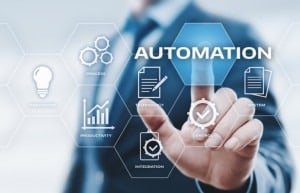
Workload automation is the foundation of the digital transformation necessary to deliver a great customer experience today.
Companies live or die on the experience they provide for their customers today. Across multiple channels, from physical stores to online and mobile, customer expectations around responsiveness and personalized service have never been higher.
In fact, in a 2017 survey by analyst Gartner, more than two-thirds of companies said they compete mostly on the basis of customer experience (CX), over price, and product. That figure rose to 81% by 2019. CX is the new battleground.
The fight’s not just about consumer CX either. A study by consultant Walker claims that CX will also overtake price and product as a competitive differentiator in the business-to-business (B2B) market as business buyers demand the same fast, personalized, and friction-free digital interactions they experience as consumers.
See also: More Than Personal: Customer Experiences in the Post-Digital Age
CX is everything
The consequences of failing to meet those expectations have never been more damaging to brands. In its ‘Experience is everything’ report on the future of CX, PwC found that a third of the 15,000 consumers it questioned would leave a brand they love after just a single bad experience. That figure rises to 92% for two or three bad experiences.
The proliferation of big data is key to providing the analysis and insight that allows companies to create better CX, but many organizations are struggling to manage the volume and different types of enterprise data: transactional, behavioral, social media, supply chain, and more. They are drowning in ever-increasing and disconnected silos of both structured and unstructured data — and this can have negative consequences for CX.
While most businesses rightly focus on the customer-facing applications and processes that drive CX, delivering great experiences goes much deeper. It’s less about how data is stitched together at the front end and more about the underlying process of orchestrating the collection, evaluation, and governance of that data to ensure its quality and trustworthiness for those front-end applications.
Here are four ways that automation and big data can help you improve CX:
1. Personalization
Personalized experiences not only meet consumers’ expectations but also help drive greater customer loyalty and revenue growth. In a survey of 1,000 shoppers, almost half said they had purchased a product they did not intend to buy after receiving a personalized recommendation from a brand.
But when it goes wrong, it can drive customers away. For example, I received a friendly email from my local car dealer to remind me that the car I had bought from them was due for an oil change. All good, except the car, was an electric car that definitely doesn’t need any oil. The dealer will have had the correct information lurking somewhere in its systems, but it was clearly not joined up and resulted in a negative interaction. Nothing is guaranteed to annoy your customers more than asking them for information about them that they know you already have or failing to use information they have previously provided.
Workload automation powers the processes that join up data across various systems and lines of business so that the right people automatically get the right information when they need it. This allows them to provide personalized CX tailored to the customer’s needs.
2. Responsiveness
Today’s always-on business requires real-time information to respond effectively and rapidly to changing market environments and customer demands.
And there are few more visible examples of the so-called “always-on” enterprise than Amazon. Our interactions with Amazon and its behind-the-scenes processes are almost fully automated to ensure that AWS clusters are provisioned, and packages are delivered on time and accurately.
But, for many organizations, the complexity of legacy IT systems and tools is a barrier to delivering this responsive always-on capability. For example, a study by analyst Vanson Bourne shows that a single web or mobile transaction now crosses an average of 35 different technology systems or components, compared to 22 five years ago. The same study also found that 76% of CIOs polled said IT complexity could soon make it impossible to manage digital performance efficiently.
A responsive CX requires real-time access to critical systems. You need to coordinate and orchestrate activities that move millions (or trillions) of data points across tens of thousands of processes within a complex landscape of on-premises and cloud-based applications and services. Whether it’s to fulfill orders or drive a supply chain, processing information in real-time requires reliable, flexible, and highly capable automation at the core of your business.
3. Predictive insight
An increasingly important element of CX is a predictive capability that allows organizations to identify spikes or falls in demand before they happen, so they can continue to meet customer expectations.
Combining, assessing, and interrogating data in various ways to determine potential future patterns comes under the umbrella label of ‘predictive analytics,’ but making predictions about the future really requires a combination of data mining, statistical analysis, machine learning, and, in some cases, artificial intelligence. These processes must be joined up with back-end supply chain and inventory management systems as well as customer-facing digital channels.
It takes automation to handle both the increasing complexity and growing volumes of business data necessary to deliver this predictive capability. Automation of the collection and evaluation of data and of the processes that underpin data management is essential for dealing with the mixed environments of today’s businesses.
To be useful, automation must connect with any platform, application, or technology. And it must be easy to deploy at any time and in any part of the enterprise.
4. Supply-chain visibility
While CX is thought of primarily as a front-end function, in reality, it is automated IT and workload automation that do the heavy lifting to support the delivery of critical business services such as stock replenishment, order fulfillment, and credit card processing.
It’s the automated processes that really keep digital businesses moving by seamlessly transporting data across ERP, CRM, finance, and other business systems. As complexity grows within an organization and new situations develop, it’s critical for these activities to be orchestrated and coordinated in an adaptable way. Key business processes need high levels of automation that can function flexibly without significant human intervention.
Accelerate digital transformation for better CX
Workload automation is the foundation of the digital transformation necessary to deliver great CX today. And to be effective, automation requires modern IT tools to develop applications and manage IT infrastructure.
But most legacy job scheduling and workload automation tools don’t provide the flexibility businesses need to succeed. It’s only by modernizing automation capabilities as well as how these capabilities are delivered that businesses can access the speed, reliability, quality, and flexibility they need to drive successful digital transformation.
As the research analyst organization Enterprise Management Associates (EMA) says in its ‘Modernize to digitize’ whitepaper: “Digitization of business processes is table stakes in the modern economy. IT infrastructure must be modernized to support agile development and the transparency and speed that digitized organizations demand.”
That’s why the combination of modern workload automation and big data is just the ticket for fast, resilient, and flexible digital business transformation. This then enables more reliable and scalable systems that are able to support the superior CX that today’s consumers and enterprises demand.




























